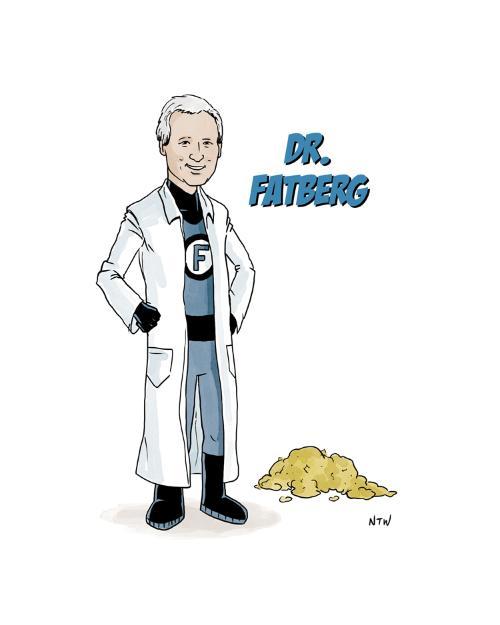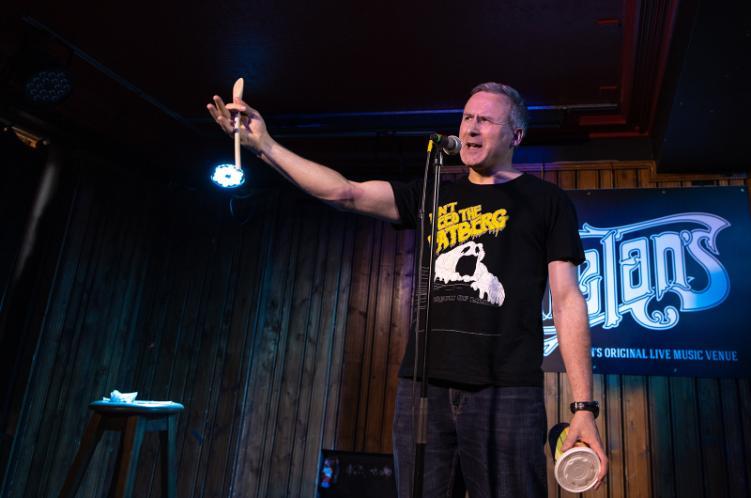Summary
Fatbergs are a global issue. They form in sewers when people put fat, oils and grease down the sink, and flush products like nappies and wet wipes down the toilet. Every year, water utilities spend many millions unblocking sewers. Fatbergs also cause flooding, traffic diversions, and harm to wildlife. Dr Curran’s research has examined how we can better deal with them. As well as contributing to a UK policy steering group, and working on new technologies to tackle fatbergs, he has conducted a wide range of outreach activities – including interviews in the international media, a stand-up comedy routine, and an appearance as a comic book character – helping to raise awareness of the issue and avoid harmful and expensive sewer blockages.
 Research description
Research description
Fatbergs form in sewers when households and restaurants put fats, oils and grease (FOG) into the dishwasher or down the sink, and flush products like nappies and wet wipes down the toilet. While this is a global issue, the annual cost of sewer blockages and fatberg removal in the UK alone is up to £200 million. This does not include the cost and nuisance associated with the resulting overflows, flooding of properties, traffic diversions, environmental damage, and fish kills. Four in every 10 Irish people have admitted to pouring FOG down the sink. In 2021, Irish Water responded to approximately 10,000 blockages along the wastewater network, which were leading to sewer overflows.
Despite the detrimental effects of fatbergs, there is no consistent international approach to FOG waste management. However, some successful FOG management programmes have been established in specific locations, such as in Dublin city and in Scandinavian countries.
Dr Curran’s research reviewed existing approaches to managing these fats, oils and grease. Tackling FOG and combatting the impact of fatbergs requires an understanding of three things: the various factors that cause FOG to build up in sewers; tactics to raise awareness and change behaviours; and ways in which FOG waste might be repurposed (like as a source for bioenergy or biomaterials).
The research, published in a highly cited review paper, found that the most common approach internationally is to prevent FOG from entering sewers in the first place, often through simple awareness campaigns. Despite its potential, diverted FOG is rarely used for bioenergy or biomaterials.
Dr Curran’s work highlights the importance of managing all facets of the FOG waste lifecycle in order to prevent and mitigate the extensive environmental and financial damage caused by fatbergs. This will require new processes and techniques to be developed, ensuring the future evolution of FOG waste management helps us create sustainable urban environments.
